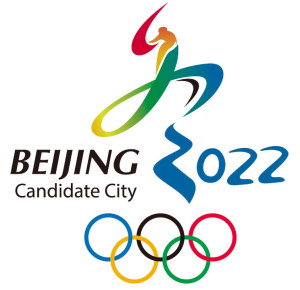In a few hours’ time, IOC President Thomas Bach will announce either China’s capital, Beijing, or Kazakhstan’s largest city, Almaty, as the host of the 2022 Winter Olympic Games. Here are some reasons why China should be confident of success – and some reasons to worry:
- PEOPLE. There are not quite 1.3 billion reasons why Beijing will win, but Chinese President Xi Jinping has claimed that 300 million people will take up winter sports should Beijing win the Games. Misleading Chinese stats is a particularly bugbear of these pages, and that number seems extraordinarily high at first glance – plucked, as it is, from thin air – but even applying the Weibo rule and dividing by ten, 30 million participants have the potential to revolutionize the winter sports industry.
- EXPERIENCE. Beijing is in the unique position of having held an Olympic Games in the very recent past, so a number of people who were directly involved in the success of 2008 will be directly involved in making sure 2022 is an equal success. The 2014 Youth Olympic Games in Nanjing didn’t hurt either. In short, the IOC voters know that China has what it takes to put on a great show.
- TELEVISION. Don’t underestimate the power of television networks – led, of course, by NBC’s billions – to influence decisions of this nature. If you think that NBC executives would want Almaty to win out over Beijing, you are either certifiably insane or Kazakh. Visually, Almaty’s stunning panorama would trump China’s brown mountains, but the depth and range of feature stories produced for an American audience would be far, far greater in China.
Why Beijing will lose
- DISTANCE. China has built some pretty remarkable high-speed rail networks in recent years, and another one will connect Beijing with Zhangjiakou (where some of the skiing events will be held) by 2019, with the 193 kilometers covered in just 50 minutes – or so they claim. While that’s undoubtedly fast, Olympic Games these days are supposed to be as compact as possible, and with IOC members concerned that this journey will realistically last double the estimated time, that’s a major drawback, especially with Almaty’s bid being very compact indeed.
- LACK OF SNOW. Kind of obvious after seeing these pictures, but the mountains in Yanjing (where the alpine events will be held) get about as much snow each year as your average freezer – it’s cold, but that thin, crusty layer of ice ain’t gonna cut it. Yes, manufacturing fake snow is a perfectly acceptable method at resorts around the world, but in a country that is desperately short of water, the environmental impact of piping enough water in for what is basically a frivolous luxury is worrying.
- SUSTAINABILITY. This is a big factor for Olympic bids today, and while a Winter Games would boost the profile of winter sports immeasurably in China, it’s unrealistic to think that these proposed venues (especially Yanjing) can continue to have that pipeline of water to make fake snow (see above) after the Games have finished.
Other issues that could go either way
- POLLUTION. Beijing’s pollution problem is well documented and is sure to gather a lot of unwanted attention if the 2022 Games come to China – as happened with the 2008 edition – but if the government can convince voters that a successful bid would help clean up this problem (even though, technically, this lies outside the scope of the Games), Beijing could turn a negative into a positive. Besides, Almaty also has pollution problems of it own.
- BUDGET. This was the Games That No One Wanted, an issue that prompted major reform (aka the Olympic Agenda), but the withdrawal this week of Boston from the race to host the 2024 Summer Olympics shows that cities still think it is prohibitively expensive to host a Games. Both Almaty and Beijing have proposed thrifty budgets, but Beijing has been more sneaky by not including the Zhangjiakou rail link in its costs. A win for Beijing could be seen as awarding the Games to those with deep pockets – going against the spirit of the 2020 Agenda – but Almaty also has (oil) money to burn, and there are no cheaper alternatives in this two-horse race.
Conclusion
Each city needs 43 votes to win, given that 85 of the current 100 IOC members will be voting. The fascinating GamesBids.com puts the BidIndex fractionally in Beijing’s favor by a margin of 57.01 to 56.44, while the Around The Rings Power Index ranks Almaty’s bid as slightly stronger than Beijing’s, 71-70, though concedes that “Beijing still has the reputation and political influence that makes it the favorite”. Almaty has closed the gap in recent weeks with an impressive campaign, but it looks like Beijing will have just enough support to shade the vote.


